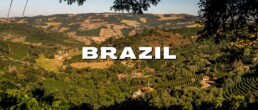Our lighter-style MVP seasonal blend is a delight to drink. It’s superb through milk (esp. oat milk – thank us later!) but truly shines as an espresso. It’s balanced and juicy with a refined sweetness and flavours of plum, cranberry and a vibrant citrus fruit acidity.
This coffee was designed to blow your mind. We don’t like to play favourites, but if there’s a Most Valuable Player, this blend is it!
MVP is currently made up of three epic coffees from Honduras, Brazil and Ethiopia. These coffees are incredible as stand-alone singles, but blended together: it’s the definition of next level.
What makes MVP so special? The origins that make up the blend are outstanding microlots that are often available in our singles lineup. We rotate the blend origins seasonally, not just fresh crop singles (like our other blends), but a whole new & exciting recipe each time!
We’ve meticulously sourced each of the MVP origins from the farms below:


We’ve been buying coffee directly from Honduras coffee legends, Marysabel Caballero and Moises Herrera of Finca El Puente, for years now. Our ongoing relationship means we regularly buy their coffees to round out our blends, as well as jumping on any awesome microlots when the opportunity arises!
From experimental varieties to unique ways of processing, they constantly push the boundaries of quality. Marysabel Caballero’s grandfather, Felipe García, established the family’s coffee farms & passed them down to his daughter, Sandra. The family sub-divided their land into a number of areas, giving different zones to the family members who each manage those areas independently.
El Puente is one of Marysabel’s, which she owns & manages with her husband, Moisés. Together, they’ve dedicated themselves to producing the highest-quality coffee they could. When they heard about the first coffee quality comps in Honduras, they naturally entered their coffee. From the get go, their coffees started to win prizes, and coffee from El Puente began a winning streak that is unparalleled.
Today, it’s one of the most innovative farms in the world, growing exotic coffee varieties under unique conditions, testing experimental processing techniques, and pushing every aspect of coffee production to improve the coffee and the farm itself. It’s no surprise they’ve been past recipients of Cup of Excellence honours!
On the same day the coffee cherries are picked, they’re de-pulped in the afternoon & left in tanks for fermentation. Once the fermentation process is complete, the coffee is washed and allowed to gently dry in various controlled conditions. You can read more about our direct-trade relationship with the Caballero family here.


Another outstanding coffee sourced via our direct-trade relationship with FAF Coffee. Geraldo Luiz, called Soró by the locals, was one of the first partners of FAF Coffees from the Cachoeirinha valley.
Soró’s family was one of the first to arrive in the valley. In the beginning, there was no coffee to be found, just dairy cows on pastures. Today, coffee plants cover the mountain slopes across the whole valley. The Da Silva family steward this beautiful piece of land & the Cachoeirinha waterfall that gave the valley its name.
Over 15 years ago, João Hamilton first approached Soró and his father Seu Geraldo to begin a partnership with FAF, one which is still going strong today. Soró is regarded among the community for his stories and sharing of ideas. Through his leadership, many followed his lead and joined FAF.
This coffee is a FAF Reserve coffee – sourced from the top selection of FAF’s partner farms. The coffee cherries are selectively handpicked at their ripest to ensure maximum flavour, sweetness & a clean cup. The coffee is dried naturally on cement patios.


Idido Washing Station is found in the village, or kebele, of the same name. The coffee is grown and processed in this micro-region of Yirgacheffe, famous for its deep red-brown clay soil and unique flavour profile. Since government reform in 2017, we’re getting much greater traceability on Ethiopian coffees. In recent years we can trace lots down to the washing station, rather than an entire region (Yirgacheffe, Guji, Sidamo, etc).
You often hear coffee folks talk about Yirgacheffe with a kind of reverence, with its lush forests and incredible climate. The uniqueness of this part of the world produces a very distinct style of coffee. The flavour profiles are typically fruit-forward, floral, complex and very sweet.
Natural coffees are delivered to the washing station the day they’re picked, and are sorted for ripeness and quality before being rinsed clean. The cherries are spread on raised drying beds, where they’re rotated constantly throughout the drying process. This can take 8–25 days, depending on the weather.
